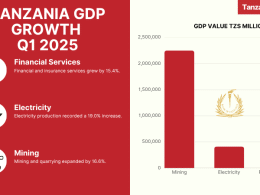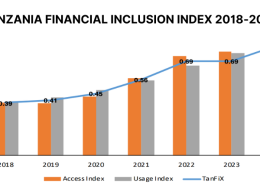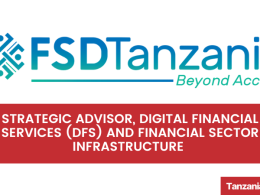The Ministry of Finance and Planning of Tanzania celebrated on 10th November 2021 the National Financial Services Week (NFSW) that took place on 8th-14th November at the Mnazi Mmoja Grounds in Dar es Salaam.
The event saw the participation of banks, microfinance institutions, insurance companies, trusts and funds, who operated to disseminate information and held free seminars about their products and services.
The initiative is part of the Government’s Financial Sector Development Plan 2021/22-2029/30 and the 5 Year National Education Plan of Finance 2019/20-2025/26 that aim to provide awareness and education about financial services to the general public.
Specifically, the government intends to make 80% of the population aware of financial matters by 2025.
Talking at the celebration ceremony, Dr. Charles Mwamwaja, Commissioner for the Financial Sector Development at the Ministry of Finance, mentioned that only 50% of Tanzanians use formal financial services.
Also participating in the event was Hon. Jamal K. Ali, Minister of State Office of the President Finance and Planning Zanzibar, who commented: “To address the challenges in the financial sector we need to be creative to improve services, increase income, employment, and awareness of these services for citizens.”
Financial Inclusion in Tanzania
Tanzania has recorded significant growth in the level of financial inclusion in the last decade.
According to the Financial Sector Deeping Trust (FSDT), a program aimed at increasing financial inclusion in Tanzania, the percentage of adult Tanzanians who access formal financial services increased from 16% in 2009 to 58% in 2013 and 65% in 2017.
And accessibility, measured by the proportion of the population living within five kilometers from where financial services are provided, has grown from 45% to 86% nationally and is at 78% for those living in rural areas. In the same year, however, only 16.7% of adults have or use bank services (9% in 2009).
FSDT’s second National Financial Inclusion Framework (NFIF) 2018-2022 aims at increasing the percent of adult Tanzanians using formal financial services to 75% by 2022.
Unlike the previous framework which put more emphasis on accessibility, the current Framework focuses on achieving the financial inclusion vision through the usage of financial products and services, without losing sight of access.










